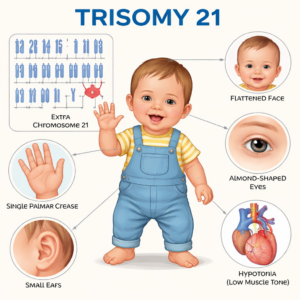Sleep is essential for your child’s health and happiness. But did you know that children can also have sleep apnea, a condition many people think only affects adults? Learning about the symptoms and causes of sleep apnea in kids can help you take action early and make sure your child gets the deep, restful sleep they need to stay healthy and happy.
What is Sleep Apnea in Children?
Sleep apnea is a condition where breathing repeatedly stops and starts during sleep. In children, it can lead to poor-quality sleep, which may result in daytime fatigue, behavioral issues, and even developmental delays.
There are two primary types of sleep apnea:
- Obstructive Sleep Apnea (OSA): The most common form in children, OSA occurs when the airway becomes blocked during sleep. This is often due to enlarged tonsils, adenoids, or other structural issues in the throat. OSA leads to frequent interruptions in breathing, causing the child to wake up repeatedly throughout the night without realizing it.
- Central Sleep Apnea (CSA): Unlike OSA, central sleep apnea is caused by a problem in the brain’s signaling process. In CSA, the brain temporarily stops sending signals to the muscles that control breathing, leading to pauses in breathing during sleep. Central sleep apnea is less common in children and is often associated with underlying medical or neurological conditions, including certain genetic disorders like Congenital Central Hypoventilation Syndrome (CCHS).
Both types of sleep apnea can result in poor sleep quality and other health issues, but their causes and treatments may differ.
Signs and Symptoms of Sleep Apnea
Spotting the signs of sleep apnea in children can be challenging, as many symptoms occur while the child is asleep. However, both nighttime and daytime symptoms may indicate your child has sleep apnea:
Night-time Symptoms:
- Loud Snoring: Regular loud snoring isn’t just noisy; it could indicate a problem.
- Breathing Pauses: Do you hear them gasp or snort in their sleep? That’s worth noting.
- Restless Sleep: If they toss and turn all night, it may be due to disrupted breathing.
Day-time Symptoms:
- Excessive Sleepiness: Is your child unusually tired during the day?
- Difficulty Concentrating: Problems focusing at school could be linked to poor sleep.
- Mood Changes: Frequent crankiness or mood swings might have roots in sleep issues.
If your child regularly experiences any of these symptoms, it’s important to take note of them and consider seeking an evaluation.
What Causes Sleep Apnea in Children?
Several factors can contribute to the causes of sleep apnea and understanding them can help you pinpoint potential risks. Some common causes of obstructive sleep apnea in children include:
- Enlarged Tonsils or Adenoids: These are common culprits obstructing airflow during sleep.
- Obesity: Extra weight might put pressure on the airway, leading to breathing issues.
- Medical Conditions: Certain conditions like Down syndrome increase the risk of sleep apnea.
- Family History: If you have sleep apnea running in the family, keep an eye out for symptoms in your child.
How to Check Your Child for Sleep Apnea
If you’re worried about your child’s sleep habits, here’s how you can get started:
1. Watch Them Sleep: Spend some time observing their sleep patterns. Consistent snoring or pauses in breathing are red flags.
2. Note Symptoms: Keep track of anything unusual both at night and during the day. This info will be useful when you talk to their doctor.
3. Talk to a Doctor: Share your observations with a healthcare professional who might recommend a sleep study for an accurate diagnosis.
4. Use Assessment Tools: Consider using resources like the FDNA Family Health Checker app, which helps assess developmental delays and flags potential genetic health concerns.
What to Do if You Suspect Sleep Apnea in Your Child
Spotting the signs of sleep apnea early is crucial for effective intervention and management. By staying informed about its symptoms and causes and using tools like the FDNA Family Health Checker app you can ensure your child receives the care they need for healthy development.
The Family Health Checker app is designed to help parents address concerns about their child’s developmental and genetic health by offering AI-powered assessments through a free, easy-to-use platform. Many developmental delays may be linked to genetic factors and early diagnosis and intervention are essential. Once the assessment is completed, parents are provided with a free evaluation report outlining possible areas of concern.
The app offers options to connect with healthcare professionals for further evaluation and a no-cost genetic test for eligible children. With its secure, user-friendly design and compatibility across various devices, the Family Health Checker app enables parents to assess their child’s development comfortably from home. While AI tools can simplify and accelerate the diagnostic process, it is important to consult a healthcare professional for an official diagnosis and tailored advice.



